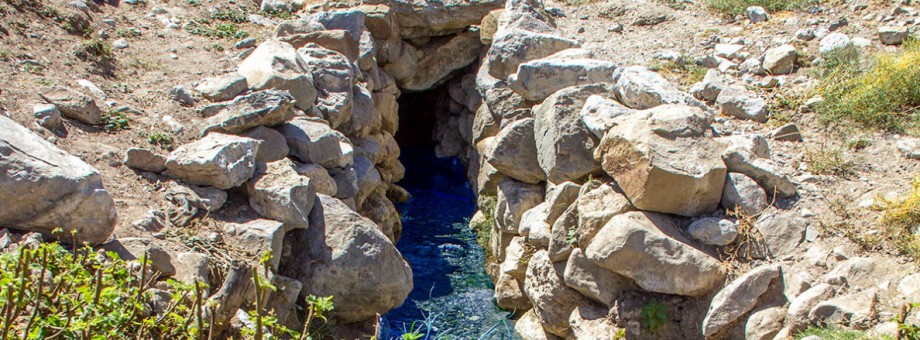History of city in destiny of people: 1000 years old tradition

Manu interesting information about residents of the city, attractions and cultural monuments comes in the days of preparation to the 140th anniversary of Ashgabat. This is not a surprise. Despite its young age, the capital of our country is rich with its historical roots, which go far to the centuries. The destiny of the city is closely related to people who make its history.
Hero of our story Tatyana Lapshina, who by destiny has tied up her life with Turkmenistan, speaks with a pride that she is a resident of Ashgabat in third generation.
Today, Tatyan Lapshina is a senior specialists of engineering studies of scientific and research institute «Türkmensuwylymtaslama» of the Ministry of Agriculture and Environment Protection of Turkmenistan. She is one of the leading researches of ‘ab anbars’ (drinking water cisterns) and ‘qanats’ (underground aqueducts), which are ancient and unique hydro-technical monuments.
But many years ago, when she was working as a teacher in Turkmen Polytechnic Institute and when she was offered to study the problem of underground water resources, she knew very little about ‘ab anbars’ and ‘qanats’. With the time, study of ancient water courses captivated her so much that it has become the main subject of her scientific articles and researches. However, Tatyana did not even think about this in the beginning of her carrier.
The Lapshins’ have settled in the southern city in the beginning of the last century, when constructor Pyotr Vasilyevich, the grandfather of Tatyana, has come to work to Ashgabat. Her father, Sergey Petrovich was working at Turkmenfilm movie studio and knew famous producers and actors of the republic. However, the most part of his life he dedicated to construction of buildings in Ashgabat working for many years in the Ministry of Construction. Trying to continue family dynasty, Tatyana Sergeevna herself has started her working carrier as a surveyor in the same ministry. Having changed her job profile, she still thinks that her work is related to construction but more ancient and unque.
The researchers and historians know for a fact that ‘qanats’ were known before Alexander of Macedon invasion. The construction of ‘qanats’ was very responsible work. It required outstanding knowledge of hydrogeology. Operation of ‘qanats’ is required for current generation more as a protection of one of the elements of national cultural heritage as well as a reminder about rational use of water – one of the most valuable natural resource.
Even speaking of her current place of living, Lapshina tells about it as if the fortune itself does not allow her to deviate from the subjects of her study – ‘ad anbars’ and ‘qanats’.
- My district’s name is Gaudan, - Tatyana Sergeevna says, - it is also related to underground waters. It is translated as a collection place of underground waters. Many facts related to ‘ad anbars’ and ‘qanats’ of the Kopetdag foothills were gathered with help of old masters, who were making ‘qanats’, having told her about water supply system and ancient methods of construction of water courses underground.
She lived all her life in Ashgabat with her relatives and friends. It was only one time when she had to leave for Rostov where Lapshina used to study and has successfully graduated from Rostov Engineering and Construction Institute.
Same as many other Ashgabat’s families, Lapshins have lost some relatives in 1948 earthquake. Grandmother of Tatyana Anna Mikhailovna was killed back then. Her grandfather and father survived as they slept outside the house.
Stories of relatives and friends that her grandfather rushed to save scientific library after saving of the survivors after the earthquake come to the memory of Lapshina. Probably, owing to this, priceless publications of XIX and XX centuries, which help young scientists to understand the importance of underground water courses, remained in the library of the institute, in which granddaughter of Pyotr Vasilyevich is working now. Today, construction and municipal service personnel ask Lapshina and receive valuable advices while building new districts.
Being dedicated to her work, Tatyana Sergeevna dreams that water of ‘qanats’ could come not only to those who have such opportunity but also to many others. There is nothing sweeter that that water and who but not Tatyana Sergeevna knows about it.


 ニュース
ニュース